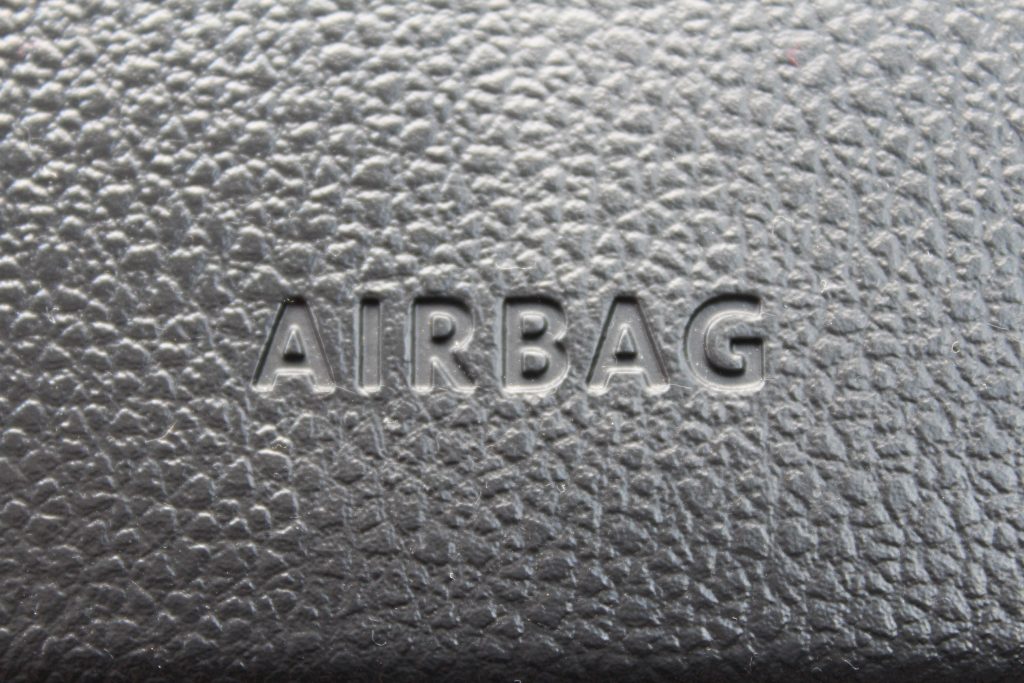 Car manufacturers have a duty to provide safe vehicles for drivers and passengers. A safe car includes an airbag that can help lessen the effects of an auto accident. What happens when your airbag doesn’t expand during a wreck? Can you sue the manufacturer of that airbag? An Ascension Parish lawsuit shows why the absence of a car that has a defective airbag will cause major headaches for your product liability lawsuit.
Car manufacturers have a duty to provide safe vehicles for drivers and passengers. A safe car includes an airbag that can help lessen the effects of an auto accident. What happens when your airbag doesn’t expand during a wreck? Can you sue the manufacturer of that airbag? An Ascension Parish lawsuit shows why the absence of a car that has a defective airbag will cause major headaches for your product liability lawsuit.
While traveling through Ascension Parish in the summer of 2012, Joseph M. Dortch (“Dortch”) swerved off the road and into a ditch after trying to avoid another vehicle crossing over the centerline of the highway. Dortch was transported to the hospital by ambulance and sustained several injuries. His car was totaled and eventually sold by his insurance company, State Farm Mutual Automobile.
Following the accident, Dortch sued the other driver and FCA US LLC. Against FCA US LLC, Dortch claimed that the airbags in his vehicle were “unreasonably dangerous” because they failed to deploy during the accident and were, thus, the proximate and contributory cause of his injuries. FCA US LLC filed a motion for summary judgment in response to these claims, arguing three points to undermine Dortch’s allegations.
First, FCA US LLC argued that summary judgment should be granted because Dortch had insufficient evidence to support his claims at trial since he did not possess the vehicle or any of its parts, including the airbag system, at issue in the lawsuit. Second, although the car manufacturing company did concede that the airbags did not deploy during the accident, FCA US LLC further argued that Dortch had no evidence to prove the airbags should have deployed, that their failure to deploy was the result of a product defect, or that the alleged product defect was the cause of Dortch’s injuries. Finally, FCA US LLC argued that Dortch could not meet the burden of proof to establish a res ipsa loquitur claim.
At a hearing on the motion for summary judgment, the trial court ruled in FCA US LLC’s favor citing its first argument that in the absence of Dortch’s possession of the vehicle, the driver’s claims could not proceed. As a result, the trial court dismissed Dortch’s lawsuit, and he appealed.
On appeal, the First Circuit discussed the grounds upon which a product may be considered “unreasonably dangerous” according to Louisiana law, including in construction or composition (La. R.S. 9:2800.55); in design (La. R.S. 9:2800.56); lacking adequate warning (La. R.S. 9.2800.57); and failure to conform to the manufacturer’s express warranty (La. R.S. 9:2800.58). Nevertheless, the First Circuit determined that Dortch did not present any evidence of the previously mentioned conditions. Therefore, Dortch turned to res ipsa loquitur doctrine in seeking relief for the failure of the airbag to deploy.
Res ipsa loquitur is an evidentiary legal doctrine. It acknowledges that even without direct evidence related to the cause of an accident, one can still prove causation. To do so, Dortch needed to show; (1) the accident would not have normally happened without negligence and (2) the accident was caused by something or someone within the control of the accused party. Yet, once again, the First Circuit found that Dortch did not meet the standards for this doctrine either because he failed to present evidence to establish that the airbags were unreasonably dangerous. The appeals court reasoned that merely stating that the airbags should have been deployed was not enough. Thus, the First Circuit could not find that FCA US LLC had breached any legal duty owed to Dortch. The appeals court also stated there have been some instances where courts have determined that an airbag not deploying during an accident is the proper function for that scenario. Therefore, the absence of the car (and airbags) in question played a significant role in the dismissal of the case.
In a last-ditch effort, Dortch argued on appeal that the trial court should not have granted summary judgment in favor of FCA US LLC because he should have had more time to conduct adequate discovery, such as gathering evidence, preparing witnesses, and seeking expert testimony. The First Circuit, however, remained unpersuaded, stating that Dortch had nearly two years to search for the vehicle. During that time, he could have secured the testimony of an expert who could demonstrate that the airbag failed to deploy due to FCA US LLC’s negligence.
The First Circuit affirmed the trial court ruling and dismissed Dortch’s claims. While accidents do happen, the tricker consideration is establishing the cause. For claims like this, having an excellent attorney early in the discovery process to collect the necessary evidence to prove negligence is the key to a successful and credible case.
Additional Sources: JOSEPH M. DORTCH VERSES JANE DOE & CHRYSLER GROUP, LLC
Written by Berniard Law Firm Blog Writer: Gina McKlveen
Other Berniard Law Firm Articles on Res Ipsa Loquitur: Fall Accident Leads to Failing Res Ipsa Loquitor Suit in Ouchaita
 Louisiana Personal Injury Lawyer Blog
Louisiana Personal Injury Lawyer Blog

